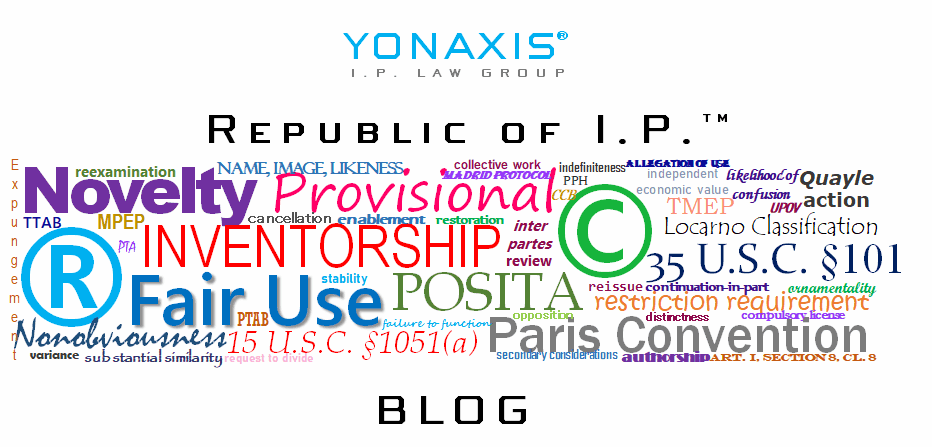Reviewing the last U.S. Supreme Court 2022 term, the highest court decided several high-profile cases involving intellectual property rights. The keyword among these cases is “limitation.” There are limitations on the breadth of particular areas of IP law. These limitations will affect the IP holder’s rights, as well as those who are infringing those rights. …
Category: scotus watch
IP decisions from the u.s. supreme court
SCOTUS Grants Certiorari on Appointments Clause Issue
In its orders of October 13, 2020, the U.S. Supreme Court granted petitions for writ of certiorari to three cases involving Arthrex, Inc., dealing with the constitutionality of the PTAB’s judges: United States v. Arthrex, Inc. (Docket No. 19-1434), Smith & Nephew, Inc. v. Arthrex, Inc. (Docket No. 19-1452), and Arthrex, Inc. v. Smith & …
SCOTUS Watch: SCOTUS Finds Adding “.com” to “Booking” Makes it a Non-Generic Registrable Mark
In a major ruling, the U.S. Supreme Court held in U.S.P.T.O. v. Booking.com B.V.,[1] that an otherwise generic mark used in commerce conveys source-identifying characteristics when used with the “.com” top-level domain (TLD). In her majority opinion, Justice Ginsburg opined that since only one domain name owner can hold one particular domain name at any …
SCOTUS Watch: SCOTUS Decides Against Wading into 101 Quagmire
On January 13, 2020, the U.S. Supreme Court denied petitions for writs of certiorari in four cases dealing with patent subject matter-eligibility: HP Inc. v. Berkheimer, Hikma Pharms., Inc. v. Vanda Pharms., Inc., Garmin USA, Inc. v. Cellspin Soft, Inc., and Athena Diagnostics, Inc. v. Mayo Collaborative Servs., which was discussed earlier on this blog. …
SCOTUS Watch: Patent Eligibility Showdown Looming Before Supreme Court
On January 10, 2020, the U.S. Supreme Court will discuss at its first conference meeting whether or not to take up one to four cases dealing with patent eligibility under 35 U.S.C. §101. Patent eligibility has been a contentious source of patent application rejections or invalidations during post-grant litigation. Medical diagnostics and software have been …
SCOTUS Watch: High Court Strikes Down USPTO Attorney’s Fees
On December 11, 2019, the U.S. Supreme Court affirmed the Court of Appeals for the Federal Circuit’s en banc ruling in Peter v. NantKwest, Inc.,[1] holding that the USPTO was not entitled to attorney’s fees under the 35 U.S.C. §145. Our discussion of the Fed Circuit’s en banc opinion, affirmed by the Supreme Court, was …
SCOTUS Watch: Bar on Immoral and Scandalous Marks Violates First Amendment
On June 24, 2019, the U.S. Supreme Court handed down Iancu v. Brunetti,[1] dealing with the Lanham Act’s Section 2(a) bars to trademark registration’s collision against the First Amendment brick wall; the Justices in a 6-3 vote struck down the immoral and scandalous clause of §2(a) in a somewhat mixed-up and divided Court. Brunetti is …
SCOTUS Watch: Government Is Not a Person for Purposes of AIA
On June 10, 2019, the U.S. Supreme Court overturned the Court of Appeals for the Federal Circuit in Return Mail, Inc. v. United States Postal Service,[1] in which the Court held that the Government was not a “person” for definitions of the America Invents Act (AIA). The case originates from Return Mail’s patent, U.S. Patent …
SCOTUS Watch: Costs Recovered Limited as Specified in Copyright Act
In the second copyright case decided by the U.S. Supreme Court on March 4, 2019, Rimini Street, Inc. v. Oracle USA, Inc.,[1] the high court dealt with the question of whether “full costs” is more than the costs set forth in either 28 U.S.C. §1821 or §1920. Both Oracle and Rimini Street are competitors in …
SCOTUS Watch: On-Sale Bar Still Valid Under AIA
On January 22, 2019, the United States Supreme Court handed down a highly anticipated ruling that has caused measurable discrepancies amongst the patent community after the America Invents Act (AIA) was enacted. That ruling, Helsinn Healthcare S.A. v. Teva Pharms. USA, Inc.,[1] held that the on-sale bar applies to confidential sales more than one year …
